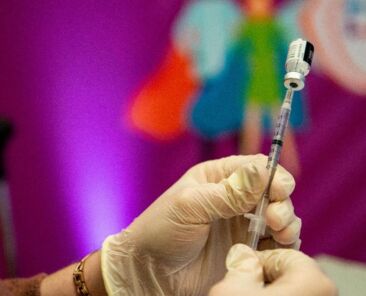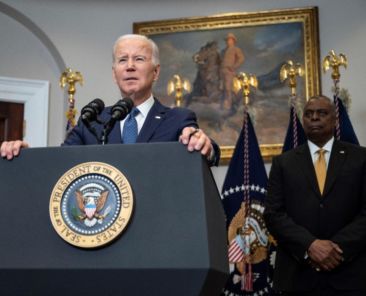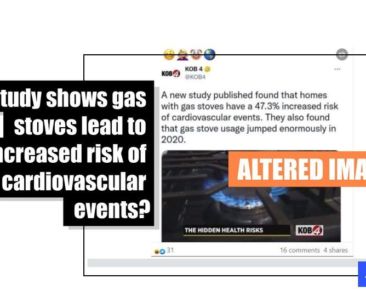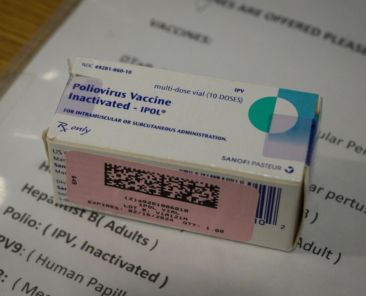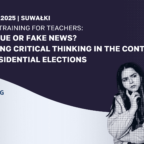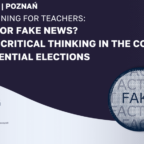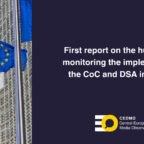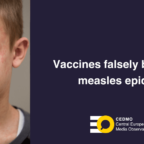About CEDMO
The Central European Digital Media Observatory (CEDMO), as an independent non-partisan multidisciplinary hub, aims to identify, research and prioritise the most critical sources and causes of information disorders in Central Europe (mainly the Czech Republic, Slovakia and Poland). This international consortium was created to propose a set of short and longer-term actions, as well as recommendations to help civil society, public institutions and the private sector respond to the declining trust in key institutions and help society to resist the effect of increasing exposure to mis- and disinformation.
By interacting and coordinating with European Digital Media Observatory (EDMO) and other regional EDMO hubs in EU, CEDMO will contribute to curbing threats posed by information disorders, including disenchantment with the democratic processes, and discord in civil society in Europe, and to building community and nation-wide resilience while protecting information ecosystems.
About CEDMO
The Central European Digital Media Observatory (CEDMO), as an independent non-partisan multidisciplinary hub, aims to identify, research and prioritise the most critical sources and causes of information disorders in Central Europe (mainly the Czech Republic, Slovakia and Poland). This international consortium was created to propose a set of short and longer-term actions, as well as recommendations to help civil society, public institutions and the private sector respond to the declining trust in key institutions and help society to resist the effect of increasing exposure to mis- and disinformation.
Our Partners
About CEDMO
The Central European Digital Media Observatory (CEDMO), as an independent non-partisan multidisciplinary hub, aims to identify, research and prioritise the most critical sources and causes of information disorders in Central Europe (mainly the Czech Republic, Slovakia and Poland). This international consortium was created to propose a set of short and longer-term actions, as well as recommendations to help civil society, public institutions and the private sector respond to the declining trust in key institutions and help society to resist the effect of increasing exposure to mis- and disinformation.
Our Partners
“BREAKING: 86% of children suffered an adverse reaction from the COVID vaccine, according to Pfizer clinical trials,” says a July 15, 2023 tweet from Leading Report, which AFP has previously fact-checked for spreading misinformation.
The 18-second video was shared on Twitter on July 3, 2023. It purports to show explosions at the Eiffel Tower, smoke billowing around surrounding buildings and several fighter jets flying over the French capital.
“Protesters in France throwing cars,” reads a Thai-language tweet that shared the video on July 4.
“I’m gonna tell you what I just found out about lab-grown meat and I can assure you, you’re going to be disgusted,” says Kashif Khan, content creator and CEO of a DNA testing company, in a June 25, 2023 Facebook reel.
“Joe is hated all over the world,” said “Catturd,” an account popular with supporters of former president Donald Trump, in a February 22, 2023 tweet sharing the image.
“Now Biden is doing what he said 10 months ago would lead to World War III. He is sending in American tanks,” said former president Donald Trump, who is gearing up for the 2024 election, in a video tweeted February 1, 2023.
The altered screenshot was shared on Facebook here on January 19, 2023.
“Polio stopped when they stopped dousing the population woth DDT not some injection,” said a misspelled Instagram post on January 22, 2023.
In a Facebook video shared January 16, 2023, Mike Adams instructs viewers to “take a standard nebulizer” and inhale hydrogen peroxide and a small amount of iodine.
“World Economic Forum Declares Pedophiles ‘Will Save Humanity,'” says a January 3, 2023 headline from NewsPunch, claiming this was from a research paper presented at the WEF in Davos, Switzerland.















